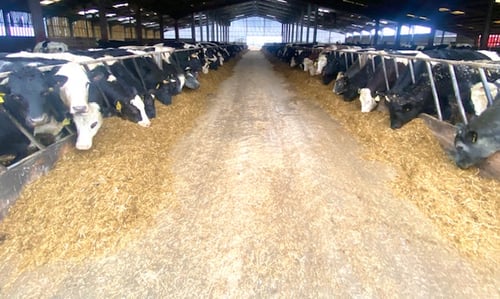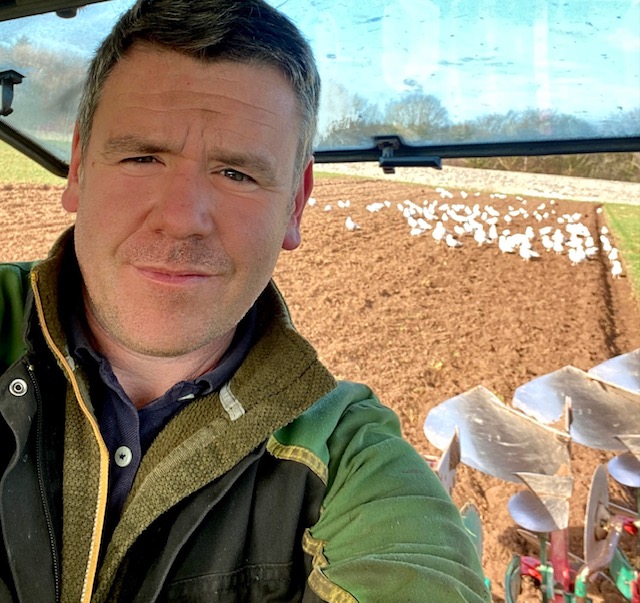Achieving net zero relies on productivity
Dylan Jones has an 800 acre family run farm in Anglesey with the aim to become 100% self sufficient which began in 2016, when Dylan began working on a plan for the farm to become net zero.
The farm finishes 1500 cattle which are sourced from various local dairy farms in North Wales. Usually they are continental cross friesian steers bought at 18-24 months. They grow all their own feed, with 300 acres of barley, 20 acres of peas and additional fast grass and high protein legumes.
The key challenge that Dylan faced in his journey to net zero was productivity in the cattle enterprise, ‘The assumption at the start of the project was that as we were a cattle farm, we would always struggle to become fully carbon neutral’
Tight margins and the commitment to minimising waste at all stages of production meant Dylan needed to use a tool that could provide him with detailed individual animal data. Which is when they started using Breedr to monitor daily live weight gain (DLWG).

Each week 100-150 cattle are weighed through the Breedr app. Animals are selected based on DLWG or more specifically, DLWG changes. The target is for 1.7kg//day, but when this starts to drop the animals are less productive and are not achieving the target set. When DLWG gets closer to 1kg/day, they are selected for slaughter.
"Breedr allows us to determine when animals are static, meaning we move them on and are not wasting energy."
On average the farm sends 40-45 cattle to an abattoir each week where they have an agreed straight through price. With tight margins this allows them to keep on top of costs.
"Breedr has changed the way we farm and is pivotal in helping us become carbon neutral." says, Dylan. "Aside from the carbon side of things, profitability is key. We know the exact margin on every steer, Breedr provides me with all the information I need. With a contract to sell and knowing the cost of our homegrown forage we can determine the exact cost of production."
Breedr has also provided them with a genetic advantage. Dylan highlighted ‘Through breeding reports on Breedr we now source better cattle as we know which farms produce the most productive animals and can select directly from them.’
As a beef finisher they have their finger on the pulse, keeping animals on track and knowing exactly what individual animals are doing within the system.
"Over the years we used to say ‘oh we will give them another week’ but with Breedr we know exactly when an animal is no longer productive and can make quick, accurate selection decisions."
"Despite initial concerns that it would not be possible to reach carbon neutral in a beef system, we have recently had a carbon audit on our farm and we are very nearly there. Breedr has helped us become carbon neutral." concludes Dylan.




